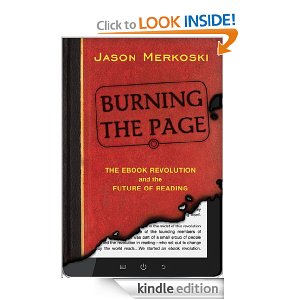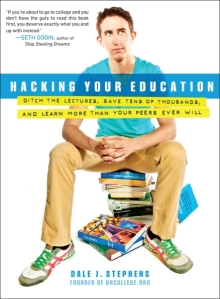NANOWRIMO DAY 4
Put the Kettle on
Never start anything on a Monday. Began with good intentions. Put the kettle on, sat down to write, got distracted cause the Internet bill was four days late. Forgot the water. Put the kettle on, the kettle boiled empty, lights flashed all over the Cuisinart. Impending meltdown.
Paid the Comcast bill over the phone. Bill paying they make easy. Service is good unless you ask a question. They don’t like that sort of stuff. Sat in the sun on the patio tweezing hairs from my big toes. Everyone needs vitamin D. Washed my face with the all purpose handmade foamy soap that smells like lemon grass, massaged in cream on my face and neck.
Sighed deeply. Intention to write on a Monday morning is a serious way for me to get nothing done.
I Did What?
Read two percent in the Amazon book on Africa. Downloaded it for inspiration [procrastination]. It has some good pages and some okay. I’d like it if it had a bit more complexity. Style is lacking. I like style in prose. [insert profanity] WTF am I saying?
The non-African author wrote better than respectable prose, shared the inner workings of his Hippocampus, finished, published, and got money for those three-hundred pages, sacrificed a year of his life, most likely, and it’s not so bad a book that I don’t learn something every few pages; it just that it simply shuts down my hippocampus [similar to G-spot] the opposite of which, when I find a damn good book to read, bonfires are set off in my neurons.
This morning I said bonfires be-damned I’m gonna fill up that spot in my hippocampus with writing; the little sea horse in the brain, the one that London cabbies grow larger by taking different routes for faster and faster ways through a hulking metropolis pulsating with tiger passengers who are already late before they flop on the back seat.
Fire in the Mind
I’m gonna build a cache full of writing, irrelevant, mundane, serviceable-if-it must be cache. I’m gonna fill it with words that taste like milk chocolate. Oh no I didn’t! There I go again, playing in the word patch instead writing. [yet another form of procrastination]
That African book mightn’t held my interest if it had helped me build a cache of tiny words with bite: tart, sweet, gingery words that rich up sentences, or a sublime sentence structure that makes the heart palpably happier.
The born elsewhere, African author/teacher touts intimacy in his preface; instead his sentences are impersonal, he stands at the back of the room mouthing words from where it’s emotionally safe to write. But then maybe he’s only a surface, he can’t write any deeper, like a John Irving character, scratch his surface and there’s another surface under that. Or maybe he was afraid he might say what he really felt. I get that.
Not that I’m not learning from his deep knowledge of the continent of Africa, but the plebeian prose hurts my stomach. I crave “fire in the mind” prose, convoluted thinking parsed like a knitting needle picking at yarn, subtle colors woven through textury yarn sheered from a genuine ruminant.
But who takes time to knit brilliant socks in brilliantly subtle colors, easier to buy a consistent thread woven by questionable laborers. I like a good pair of socks. Socks can be functional, full of perfectly recurring patterns that don’t challenge my beliefs, my favored reading threads, though, better not be.
Dear Mr. Grisholm It’s Not You It’s Me. Seriously, it’s me.
Yeah, ya know, I’ll read the Africa book in short visitations – piecemeal – like the latest John Grisholm, who I’d like a word with about our reading relationship. Dear Mr. Grisholm it’s not you it’s me. Seriously, it’s me. Your 1980 setting for your latest book is an echolocation of a distant last century that I barely believe I lived in and a small community mindset that drives me nuts. That said, had I written your book, and not you written it, I would be so proud, to know that a lot of people do love your latest book, and read it breathless to the end.
But, I don’t want to revisit that time with its racist worries about how mixed race in Mississippi reacts to scandalous money. The personal genome challenges the concept of race in this century. Whatever skin color, we are all junk yard dogs, a hardy breed. Race discrimination conversation is updated, now, and very much alive. So, Mr. Grisholm, forgive me if I don’t want to revisit last century; the eighties were not my best decade.
Since it seems I’m not writing a novel this morning or maybe any morning, here’s my pared down goal: write a thousand words for thirty days, design an eBook, plunk it down for sale on Google Books and Amazon clouds. I am rusty at design but my skills are serviceable enough to publish on Google Books and Amazon. Decide at the end of thirty days whether to publish a 30K non-fiction novelette or write a 60K book in two months.
Sounds so doable when the prose is from stream of consciousness and not “fire in the mind.” Decide whether to publish on WordPress [rewrite, second draft country] first or wait for the big book to come out. In reality only a half-dozen readers will catch it on WordPress. If I publish it on Google Books maybe a dozen more might read it. I think I’m safe to publish what amounts to dumping my plebeian output on the Internet. Anonymity in the midst of the crowd is my preferred outcome. I can live with that. Whisper so I can’t be heard at the front of the room.
Found Essay
The “found essay” worked for me yesterday. “Write it Slant” writing book suggests that the writer find an object from the past and free associate. It’s a technique that rated over one thousand words in a not so bad memory of my Commodore 1541. At least, the quantity of words is going up steeply from nothing to 4000 words by dropping the quality or the “fire in the mind” essaying. But if I forget to pay attention, to hide my most inner thoughts, the strangest thoughts sneak into a harmless essay about my first computer.
Before writing a few paragraphs the helplessness and hopelessness of my marriage bled through a story on code and computer classes. It’s hard not to write about him, he’s entwined in every struggle I made to become a person in my own right. Computers were entwined with writing, he was entwined with stopping me from finishing what I started, becoming a journalist.
He stood over me when I typed the title “Tracking Snow,” the name of a short story that I didn’t grow to a full book. He screamed and I typed, he jerked the cord from the wall, and enunciated each syllable, “I’ll grind you to dust, WHORE if you don’t stop.” And as I those words sneak into my story, I’m right back there, my heart beating faster, like an Iraq veteran it never wholly leaves me.
Oops! Uh mm, have to whip that 1980 history out of my essay. Getting into Grisholm story telling. It is me not you Mr. Grisholm who doesn’t want to read about the eighties. Human dignity is important to me, and you serve it well when you write. I don’t want to look back at the eighties lest I turn into a pillar of salt, and no longer write. The wounds of marriage are fresh. The African book hovers above the surface denying the individual African mind for the universal African, for which there is none. My brain in marriage felt like Africa, the gold and minerals taken, the humanity denied.
There I stand beside the author who tried to stand at the front of the room and be heard but didn’t have the courage. I see that filling a page with one thousand words encourages that which is below the surface to come up. Not sure I like that but I made a promise to write one-thousand words and that I’m going to do. I’m going to publish these words whether they sound odd or not because who will read them? It is illogical to think writing practice could upturn the customary routine of a life. There! I’ve written my quota. It’s somewhat readable. I swear Mr. Grisholm it is me not you.







